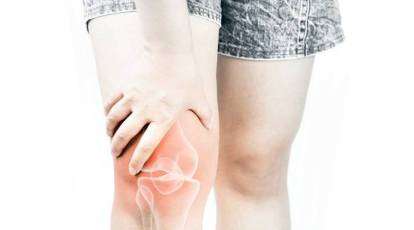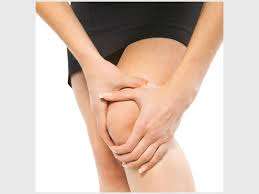Knee pain and degeneration are common complaints, especially as we age, but could carrying extra weight be exacerbating the problem?
In this article, LeanAndFit.info research team shall dig deeper into the connection between obesity and knee degeneration, examining whether this condition is a hidden side effect of obesity.
I would also spend some time analyzing the science behind knee joint health, how obesity impacts knee degeneration, and whether losing weight can reverse or slow down degenerative changes.
So basically, by the time we come to the end of this article, I would have answered the pressing question: Is knee degeneration truly a hidden side effect of obesity?
So why waste any further time – let’s get on with it:
Contents of this Article:
- Introduction: Knee Health and Obesity
- The Mechanics: How Obesity Impacts Knee Degeneration
- Degenerative Arthritis and Obesity: The Link
- Scientific Evidence on Weight and Knee Health
- Real-Life Example: How Extra Pounds Affect Knees
- Prevention and Management: Can You Reverse Knee Degeneration?
- FAQs on Knee Degeneration and Weight Loss
- Conclusion: The Verdict on Obesity and Knee Degeneration
Knee Health and Obesity
Understanding how obesity contributes to knee degeneration is crucial for both prevention and management. Here’s an informative breakdown:
Increased Mechanical Load on Knees:
- Excess Weight Amplifies Pressure: Each additional pound of body weight adds approximately four pounds of pressure on the knee joints during activities like walking or climbing stairs. According to the National Institute of Arthritis and Musculoskeletal and Skin Diseases (NIAMS), this extra pressure accelerates cartilage wear, increasing the risk of osteoarthritis.
Systemic Inflammation:
- Adipose Tissue and Inflammatory Mediators: Beyond mechanical stress, excess fat cells release pro-inflammatory chemicals called cytokines. According to Johns Hopkins Arthritis Center, these inflammatory markers contribute to joint degradation, worsening knee osteoarthritis.
Hormonal Influences:
- Role of Leptin: Leptin, a hormone produced by fat cells, is found in higher concentrations in individuals with obesity. Research from Harvard Medical School suggests that elevated leptin levels contribute to cartilage breakdown and increase inflammation in knee joints.
Higher Risk of Osteoarthritis:
- Studies from the Centers for Disease Control and Prevention (CDC) show that obese individuals are nearly five times more likely to develop knee osteoarthritis compared to those with a normal weight. The excess stress on weight-bearing joints, combined with inflammation, accelerates cartilage deterioration.
Impact on Treatment Outcomes:
- According to the Cleveland Clinic, obese individuals are more likely to require knee replacement surgery. However, excess weight increases the risk of surgical complications, including infections and implant failure. Surgeons often recommend weight loss before surgery to improve recovery outcomes.
Benefits of Weight Loss:
- Research from the Arthritis Foundation suggests that losing even 10% of body weight can significantly reduce knee pain and improve function in osteoarthritis patients. Lower weight reduces stress on joints and inflammation levels, slowing disease progression.
Emerging Treatments:
- A study published in JAMA Network highlights that weight loss medications like Semaglutide (Ozempic) have been shown to reduce knee pain associated with osteoarthritis. Patients who lost weight using these medications reported almost a 50% decrease in knee pain.
Lifestyle Modifications:
- The Mayo Clinic emphasizes that regular exercise (such as resistance band squats), strength training (such as compound lifts), and a healthy diet play a crucial role in weight management and knee joint protection. Strengthening muscles around the knee can help distribute weight more evenly, reducing joint strain.
Occupational Factors:
- Jobs requiring heavy lifting, prolonged standing, or repetitive knee bending can compound the effects of obesity on knee health. According to the Occupational Safety and Health Administration (OSHA), ergonomic workplace adjustments can help mitigate these risks.
Importance of Early Intervention:
- The American College of Rheumatology (ACR) suggests that early intervention through dietary changes, physical therapy, and medical treatments can help slow the progression of knee osteoarthritis and improve long-term joint health.
Final Thoughts:
Obesity affects knee health through mechanical stress, chronic inflammation, and hormonal changes.
Managing weight through diet, exercise, medical interventions, and lifestyle modifications can significantly improve knee function and reduce the risk of severe osteoarthritis.
Consulting a healthcare provider for personalized strategies is essential for maintaining long-term joint health.

Degenerative Arthritis and Obesity: The Link
Obesity is a well-documented risk factor for degenerative arthritis knee conditions.
When extra weight puts more stress on the knee joint, the cartilage that protects the bones starts to break down, leading to degenerative changes in the knee and eventually arthritis.
One type of arthritis commonly linked to obesity is degenerative osteoarthritis knee, a chronic condition where the cartilage gradually wears away.
As the cartilage thins out, bones begin to rub against each other, causing pain, swelling, and stiffness, otherwise known as degenerative knee symptoms.
This process can be particularly pronounced in areas like the posterior horn medial meniscus degeneration or degenerative tear of the posterior horn of the medial meniscus, both of which are common in individuals with obesity.
Scientific Evidence on Weight and Knee Health
A growing body of scientific literature supports the link between obesity and knee degeneration.
A study published in Arthritis & Rheumatology found that obesity is a leading cause of patellofemoral degeneration in the knees, contributing to issues such as kneecap degeneration.
Another study highlighted how excessive weight can lead to patellar tendon degeneration, causing further pain and instability in the knee.
Moreover, research has shown that obesity not only accelerates mild degenerative changes in the knee but also exacerbates conditions like degenerative disc disease in the knee, contributing to an overall decrease in knee function and mobility.
Interestingly, even modest weight loss has been shown to reduce knee pain and improve function, offering hope for those looking to manage their symptoms.
Real-Life Example: How Extra Pounds Affect Knees
Let’s consider Sarah, a 45-year-old woman who has struggled with obesity for most of her adult life.
Over the years, Sarah began experiencing knee pain that worsened with every pound she gained.
Eventually, she was diagnosed with degenerative patellofemoral joint disease.
Her doctor explained that the extra weight had increased the wear and tear on her knee joints, particularly in the patellofemoral degeneration area, which is prone to weight-related stress.
Sarah’s condition worsened to the point that she developed a degenerative tear of the posterior horn of the medial meniscus, leading to severe pain and mobility issues.
After losing just 10% of her body weight, Sarah noticed a significant reduction in pain and improved knee function, highlighting the importance of weight management in combating knee degeneration.
Prevention and Management: Can You Reverse Knee Degeneration?
While it is challenging to fully reverse knee degeneration, losing weight can significantly slow down its progression.
Studies have shown that even modest weight loss can alleviate symptoms and reduce the pressure on the knee joint.
In some cases, natural weight loss has been shown to reverse some of the degenerative changes in the knee, allowing individuals to experience less pain and greater mobility.
There are also exercises specifically designed to strengthen the muscles around the knee, reducing stress on the joint. For example opt for bodyweight exercises to lose weight naturally.
These degenerative arthritis knee exercises can help improve knee stability, while non-invasive treatments like physical therapy and braces can manage degenerative knee symptoms.
Surgery is an option for more advanced cases, though most doctors recommend weight management as the first line of defense.
FAQs on Knee Degeneration and Weight Loss
Q-1: How does obesity “age” the knee faster than mileage alone?
A-1: It’s a double hit. Extra body mass multiplies joint compression with every step, while fat tissue releases inflammatory signals that slow cartilage repair and irritate the joint lining. The combo accelerates cartilage thinning and bone stress beyond what step count alone would predict.
Q-2: Why do meniscal problems show up more often with higher BMI—even without a big injury?
A-2: Higher body weight increases shear and squeeze on the menisci, the knee’s shock absorbers. Over time, this micro-strain raises the chance of fraying or tears during ordinary activities. Once the meniscus is compromised—whether by degeneration or partial removal—load concentrates on cartilage, speeding the path toward osteoarthritis.
Q-3: Can knee alignment make obesity’s impact worse?
A-3: Yes. Bow-legged (varus) or knock-kneed (valgus) alignment focuses load on one compartment. A heavier, slightly bow-legged knee, for example, tends to wear the inner (medial) cartilage faster than a well-aligned knee at the same weight. Alignment acts like a lens—whatever load you carry gets magnified where the joint is already biased.
Q-4: Do scans show real structural change with weight gain or loss—or just symptom shifts?
A-4: Imaging studies track both. Weight gain is linked with faster progression of cartilage defects and bone marrow lesions, while structured weight loss relates to healthier cartilage signals and calmer synovium. People often feel better first (less pain, easier stairs); over months, those symptom gains can be mirrored by friendlier imaging markers.
Q-5: What’s the most leveraged plan to lower knee-degeneration risk if I live with obesity now?
A-5: Stack three levers:
-
Load: Even modest, steady weight loss pays off—each pound down trims multiple pounds of force at the knee with every step.
-
Strength: Prioritize quadriceps, glutes, and calves (e.g., sit-to-stands, step-downs, bridges, heel raises) 2–3×/week to improve shock absorption and joint stability.
-
Alignment-smart cardio: Choose cycling, rowing, pool running, or incline walking to build capacity without excessive joint impact; add short daily walks to maintain cartilage nutrition.
Extras that help: shoes with cushioning and mild stability, a brief warm-up before activity, and pacing your day (shorter, more frequent bouts instead of one long grind). If your knees ache or lock, ask about targeted physio, bracing for compartment overload, or weight-management programs—addressing load and inflammation together tackles both halves of the problem.

Conclusion: The Verdict on Obesity and Knee Degeneration
So, is knee degeneration a hidden side effect of obesity?
Based on the evidence, the answer is a resounding “yes”.
Obesity places undue strain on the knee joints, leading to accelerated wear and tear, cartilage breakdown, and ultimately, degenerative osteoarthritis knee conditions.
The extra weight exacerbates patellofemoral degeneration, posterior horn medial meniscus degeneration, and other joint issues that contribute to pain and decreased mobility. Indulge in daily physical exercises to burn extra calories and maintain optimal bodyweight.
However, the good news is that by managing your weight through diet and exercise, you can significantly slow down the progression of knee degeneration and even reverse some of the damage.
Understanding the link between obesity and knee health is crucial for anyone looking to protect their joints and maintain an active lifestyle.
References:
